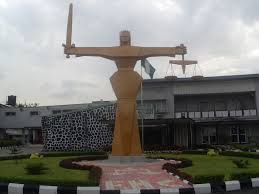
IN the words of Martin Luther King Jnr.: “Law and order exist for the purpose of establishing justice and when they fail in this purpose they become the dangerously structured dams that block the flow of social progress.”
This assertion cannot be far from the truth prevalent in Nigeria today. The essence of law and order is to ensure justice, equity and fairness. However, the processes of obtaining justice in Nigerian courts have been primarily hampered by the indiscriminate issuance of injunctions by the courts, mostly as a result of concealment of facts by the litigants and their counsel.
According to Akinwole Ogunlola, an injunction is an equitable remedy in the form of a court order that either prohibits or compels (“enjoins” or “restrains”) a party from continuing a particular activity. The party, he said, that fails to adhere to the injunction faces civil or criminal contempt of court and may have to pay damages or sanctions for failing to follow the court’s order.
The Nigerian courts have now been burdened with uncountable applications for different kinds of injunctions by litigants in protecting their perceived right but unfortunately, these injunctions have become a tool for oppression, vexation and frustration of the opposing party.
The American Judiciary established the criteria for the grant of an injunction in the case of Cyanamid Co v Ethicon Ltd [1975] AC 396.
The court needs to have regard to the following before granting an injunction:
Injunction will be granted where there is a serious question to be tried.
Injunctions will be granted where an award of damages may not be sufficient or adequate to compensate the applicant for the loss that would be incurred by the alleged violation.
Injunction will also be granted where the balance of convenience favours the applicant.
An illustration of the rule is the case of A.I.C Ltd. V. N.N.P.C. where appellants sought to enforce a contractual agreement tainted with illegality under which a contractor to the respondent was to pay over to the appellants 5% of a contract sum, for facilitating the award of the contract to the said contractor. A purported injunction issued to compel the respondent to withhold the remaining money due to the contractor (a German company) by a Lagos State High Court was set aside by the Court of Appeal. At the Supreme Court, the appellants bid to have the injunction restored also failed. The court held inter alia, per Dennis Onyejife Edozie, J.S.C on the grant of injunction:
“An injunction is an equitable remedy and it can only be granted in support of a right known to law and equity…”
Apart from government agencies and institutions deceiving the courts into arbitrary injunctions, lawyers who are supposed to be officers in the temple of justice contribute immensely to this malaise. In the case involving Honeywell Flour Mills Plc and Ecobank.
Ecobank had approached Justice Yunusa of the Federal High Court, Lagos with an exparte application and obtained an order against Honeywell, which through its lawyers, prayed the court to vacate the order, contending that the subject matter in the suit was before Justice Tsoho of the same court and it was only when Justice Tsoho refused to grant the order, that the lawyers to the other party filed the same processes before the court, where they obtained the order, without disclosing that the same suit was pending before another judge. The loan agreement triggering this dispute is also the bone of contention between the same parties before Justice Idris of the same Federal High Court.
It is noteworthy that Justice Mohammed Idris of the Federal High Court, Lagos had also ordered parties to maintain status quo. An alleged disregard of the court order is a subject of committal proceedings before Justice Idris.
There is no doubt that the circumstances of the case between these two parties have reinforced the call for urgent reform of the justice system. In my view, actions abusing the issuance of injunctions and unduly flouting them should attract a sanction in other jurisdictions and climes where decency is upheld.
Surely, to stem the tide of needless injunctions, an overhaul of the justice system has become something we cannot do without.
Developed countries have reformed their justice systems to stimulate economic growth by ensuring speedy conclusion of trials and a careful consideration of facts before granting injunctions is necessary to ensure fairness and justice for all parties to a litigation. This is an urgent call for the Nigerian justice system to be revamped lest wrong signals will be sent to investors in Nigeria and abroad.
GUARDIAN
END

Be the first to comment